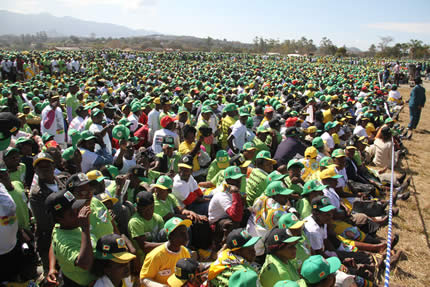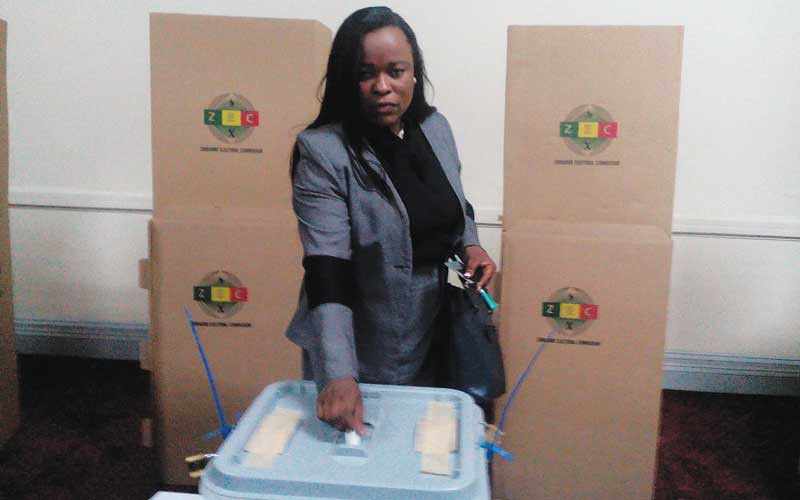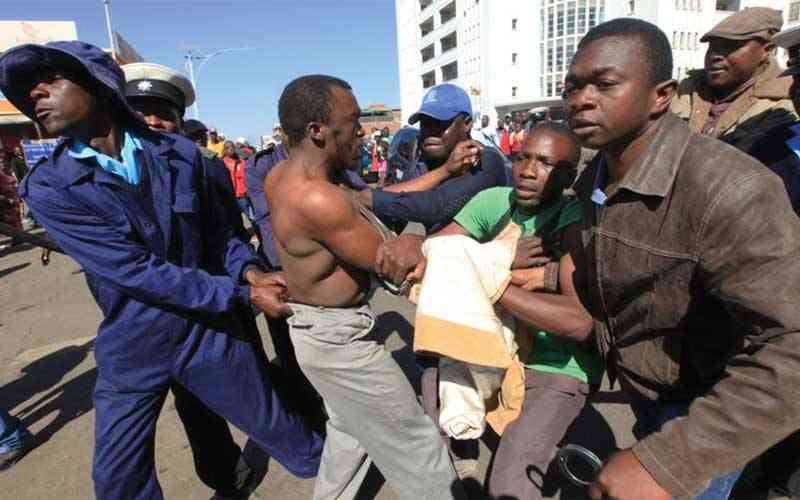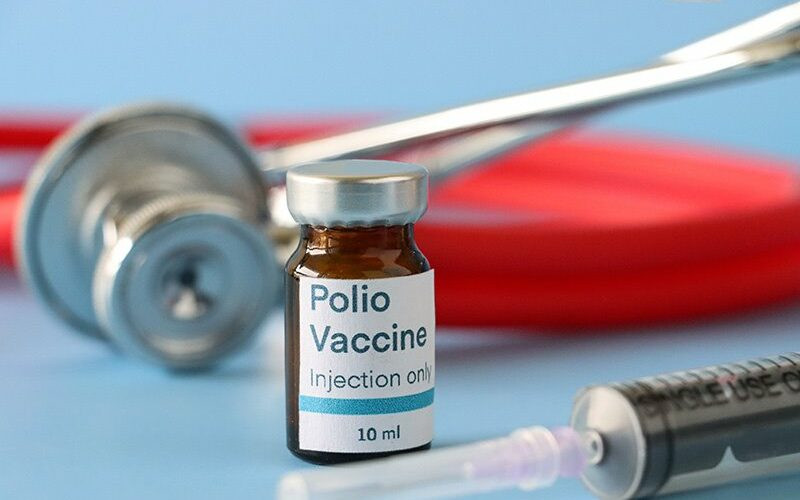
AS Zimbabweans ready themselves for the crunch polls expected next year, there is a feeling that the elections will be largely characterised by violence, of similar magnitude to the one seen in 2008.
The election preparations are already in shambles. That means that the African election observers (from the Southern African Development Community and the African Union) as well as those of us looking on from the outside are unlikely to reach credible conclusions.
Read more..
It will be difficult to answer questions of whether the polling was free and fair or even who won.
Violence in the Zimbabwean context is complex. There have been waves of government-sponsored violence in Zimbabwe since the 1980s — the violence after the 2008 elections was only the most recent.
And then there was violence perpetrated by the State in the August 2018 post-election protests, where armed security agents shot dead six protesters and civilians.
The late former President Robert Mugabe ran a security State based on terror, the intensity of which varied with the circumstances. But, it was always there.
Fear of violence is deeply entrenched among many Zimbabweans, especially outside of the Zanu PF support base.
- Chamisa under fire over US$120K donation
- Mavhunga puts DeMbare into Chibuku quarterfinals
- Pension funds bet on Cabora Bassa oilfields
- Councils defy govt fire tender directive
Keep Reading
There are plenty of anecdotes that ruling party-aligned security services have reminded potential opposition voters of that history, and the mere reminder engenders sufficient fear to have the desired consequences.
There is also the rural/urban dichotomy. Violence in urban areas is much more easily observed than in the countryside.
Yet it is in the rural areas that violence has been widespread in the past.
Zimbabwe remains a rural nation; it is in the countryside that most voters reside.
Mugabe, his successor Emmerson Mnangagwa and his dominant Zanu PF party have been especially strong among parts of the peasantry.
Violence in Zanu PF-dominated areas against political and ethnic outsiders could have some popular support.
In any event, unless it is of a significant magnitude, election observers — and the outside media — are unlikely to see it.
Yet it could have a significant impact on the outcome of the elections.
Finally, for hardliners in Zanu PF, the legitimacy of the State comes not from constitutions or elections, but rather from fealty to the heritage of the independence struggle.
Zanu PF is the custodian of that heritage. It will, therefore, try to ensure victory at any cost. – CFR
SA’s decision to end permits for Zimbabweans is shameful
WHEN December 31, 2022 arrives, South African Home Affairs minister Aaron Motsoaledi, like his peers in Cabinet, will be with their families and will not have to fear being displaced from a country they have called home.
Instead, this will be the reality for thousands of Zimbabweans who will be affected by South Africa’s decision made last December to cancel, without consideration, the Zimbabwe Exemption Permit (ZEP).
The resolve was made without due regard for what would happen to tens of thousands of people who went to South Africa seeking nothing but a better life, and whose lives will now be upended by this decision.
The exemption permits were granted to more than 250 000 Zimbabweans who were among more than estimated two million who migrated to neighbouring countries at the height of Zimbabwe’s political and economic crisis in 2008 and 2009.
The temporary measure was meant to regularise their presence in South Africa and allow Zimbabweans access to services such as banking.
But now, government has decided to cancel this measure without putting proper plans in place.
The one-year grace period expires at the end of this year.
In justifying government”s decision, Motsoaledi bemoaned how “people keep blaming the immigration services of South Africa, as if when one country creates a crisis, the country closest to it must respond by building the requisite capacity to deal with that crisis. That’s the logic here”.
The thing is, South Africa did play a role in the political crises that engulfed Zimbabwe, resulting in the economic crises, by allowing the late former Presidenr Robert Mugabe’s regime to get away with rigging the 2002 election and many other crimes after that.
There is much to be said about former President Thabo Mbeki’s complicity in the actions of the Mugabe regime as was revealed by the Khampepe report, which government spent 12 years blocking from becoming public.
Those who got caught in the crossfire of the political and economic crises in Zimbabwe did all they could to flee for a better life, turning to neighbouring South Africa for refuge.
Now, these people face further displacement as they risk deportation once the ZEP expires at the end of the year.
Those who left Zimbabwe and settled in South Africa have called this home for over 10 years. They have had children here and built their lives here.
The decision to revoke the permit affects all types of people from across the social spectrum. It impacts on teachers, truck drivers and doctors. It will separate families and leave others stranded without cars or access to banking services.
It interrupts university students who were trying to complete their degrees and it affects people like Angeline, who has been living and working in South Africa for near on a decade, but will not be able to seek treatment for brain cancer at Groote Schuur Hospital in Cape Town, without a valid permit. – Qaanitah Hunter
Walpe hosts winter school for aspiring women leaders
FROM July 5 to 7, 2022, Women’s Academy for Leadership and Political Excellence (Walpe) team hosted its annual Transformative Feminist Leadership Training Winter School 4th cohort with the assistance of Oxfam.
The training was aimed at equipping aspiring women leaders with the knowledge and skills necessary to navigate the political terrain as leaders.
The pool of participants comprised 30 aspiring leaders from all the ten provinces in Zimbabwe. There were 10 women from Zanu PF, 10 from Citizens Coalition for Change and 10 women from other political parties and independent candidates.
The winter school was conducted in a seminar style with practicals for topics such as Introduction to Social Entrepreneurship, where the participants pitched their business proposals.
This topic looked at the various small business opportunities that aspiring women leaders can venture into, in order to increase their financial gain which, they can in turn, use to fund their political campaigns.
The training also involved the development of a sound political campaign, where they pitched a mock presentation of their political campaigns.
On the first day of the Winter School, the aspiring women leaders were ushered into the program with Introduction to Feminism.
The Introduction to Feminism topic equips women leaders with a thorough history of feminism, how it has evolved over time, how it is conceptualised in modern society, and how to be a feminist leader.
This was followed by training sessions on dining etiquette, confidence building, transformative feminist leadership and power and lastly, grooming and professional etiquette.
These topics are aimed at honing the conduct of women leaders and refining the way they speak and carry themselves as public figures.
Day 2 started with reflections on lessons learnt in the previous day, followed by Public speaking and mastering the art of convincing audiences, introduction to public service and volunteerism and a presentation from Regis Mtutu of Oxfam on Why Men Excel in Politics. – – Walpe











